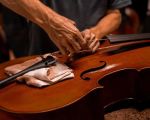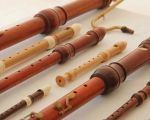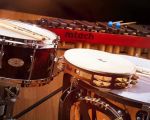- 1-understanding-the-difficulty-of-musical-instruments
- 2-key-factors-that-make-an-instrument-difficult
- 3-the-piano-and-its-challenges
- 4-why-the-violin-is-considered-demanding
- 5-the-complexity-of-the-french-horn
- 6-challenges-of-the-oboe-and-other-woodwinds
- 7-personal-experiences-and-expert-insights
- 8-how-to-choose-an-instrument-that-fits-you
1. Understanding the Difficulty of Musical Instruments
The question of “what is the most difficult musical instrument to play” has intrigued musicians and enthusiasts for decades. Difficulty is subjective, influenced by a musician’s background, physical attributes, and dedication. While some instruments require intense technical skill, others demand a deep understanding of breath control, finger coordination, or physical endurance. This section explores how to assess instrument difficulty beyond just public perception, examining the diverse demands of various musical instruments.
2. Key Factors That Make an Instrument Difficult
Several factors determine an instrument’s difficulty: physical coordination, breath or finger control, musical theory complexity, and maintenance. Instruments like the violin require precise finger placement without frets, while wind instruments challenge players with embouchure and breath regulation. Learning to read music, mastering rhythm, and achieving tone quality also contribute to the challenge. These factors create a steep learning curve for many instruments, influencing their difficulty level.
3. The Piano and Its Challenges
Often considered foundational, the piano demands significant hand independence and coordination. Players must simultaneously manage melody and harmony with both hands, often in complex rhythms. The vast range of notes and the dynamic control needed for expression add to its complexity. Although accessible to beginners, mastering the piano to professional levels requires years of disciplined practice and technical expertise.
4. Why the Violin Is Considered Demanding
The violin is frequently cited as one of the hardest instruments due to its lack of frets, making finger placement a challenge. Achieving the right pitch involves developing an accurate ear and muscle memory. Additionally, bowing techniques require control of pressure and speed to produce a pleasing tone. Many beginners struggle with tuning and intonation, and the physical posture needed can be uncomfortable initially, making mastery a long-term commitment.
5. The Complexity of the French Horn
The French horn is notoriously difficult for several reasons. Its intricate tubing requires precise breath control and lip tension to hit the correct notes. Even minor errors in embouchure can cause a harsh or inaccurate sound. The horn’s role often involves complex melodies and harmonies, demanding both physical and mental agility. Players must maintain endurance while managing the instrument’s weight and awkward shape, adding physical strain.
6. Challenges of the Oboe and Other Woodwinds
Woodwind instruments like the oboe require mastery of reed control, which directly affects tone and pitch. The oboe’s double reed is delicate and demands constant adjustment. Breath control is crucial, as well as finger dexterity for rapid passages. Each woodwind has unique fingering systems, and players often face challenges switching between instruments due to these differences. These factors contribute to the reputation of woodwinds as some of the most demanding instruments.
7. Personal Experiences and Expert Insights
Many professional musicians share stories highlighting the personal struggles they faced mastering their instruments. For example, renowned violinists often recount years of daily practice to perfect intonation, while horn players speak about overcoming physical challenges. Expert instructors emphasize that dedication, proper technique, and passion are crucial regardless of the instrument. These insights affirm that while some instruments are objectively more difficult, individual experience shapes the journey profoundly.
8. How to Choose an Instrument That Fits You
Choosing the right instrument depends not just on difficulty but also on personal interest, physical suitability, and available resources. Prospective musicians should consider trying multiple instruments, consulting teachers, and evaluating their commitment level. While “what is the most difficult musical instrument to play” is a compelling question, the best choice is the instrument that inspires and motivates you. For more guidance on selecting instruments and musical gear, visit Beat Trigger for expert advice and product recommendations.








